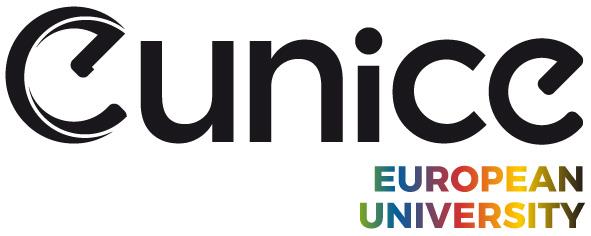Servitisation - from theory to practice, 5 ECTS

Do you want to take your organisation to the next level and create more value for your customers while deepening your knowledge of servitisation, service ecosystems, and circular transformation? Then this course is for you! This is a one-time opportunity where Eunice offers this distance learning course free of charge to associated partners.
Certificate
After a successful completion of the course, a Eunice Certificate of Achievement will be issued upon request.
Course content
Gain knowledge about concrete models, theories, and tools that will help you apply servitisation in your organisation and facilitate the transformation process that servitisation entails. The course covers concepts such as service ecosystems, value creation, and sustainability, with a particular focus on companies within the manufacturing industry, although the models and theories presented are applicable to other organisations as well. Great emphasis is placed on exchanging experiences with other course participants and teachers, as well as learning from each other.
After completing the course, you will have developed a plan for how your own organisation can practically implement the transformation process that servitisation entails.
You will learn to:
- Explain, analyse and critically reflect on how companies can create value for their customers, themselves and other actors in the service ecosystem through an expanded service offering.
- Based on theories of circular economy and circular strategies, demonstrate how services can be used as enablers for circular transformation.
- Discuss concepts, models, theories and methods in servitisation, and with support from relevant theories, to plan, assess, and critically reflect on how servitisation can be practically implemented.
Servitisation is important in various businesses and creates conditions for:
- Increased competitiveness: Servitisation means that a company focuses on offering services instead of just products. This can enhance a company's competitiveness by differentiating it from its competitors and offering a more complete solution to customers.
- Improved customer experience: By focusing on services, a company can create a better customer experience by offering services that support and enhance the use of its products. This can lead to customers that are more loyal and increased customer satisfaction
. - Increased profitability: By offering services, a company can increase its revenue and profitability. Services can often be sold at higher prices than products and can help build relationships with customers, and generate upselling and contract extensions.
- Adapting to changing market trends: the market is constantly changing and businesses that can adapt to these changes are more likely to survive and grow. Servitisation can help businesses adapt to new market trends and customer needs.
For whom?
This course is aimed at professionals, mainly in manufacturing companies but also in trade or the public sector, who are interested in servitisation and work with service and business development. It is offered to EU/EEA citizens and to professionals at associated partner organisations of the European university, Eunice.
Lecturers
- Maria Åkesson is an assistant professor of Business Administration at CTF, Service Research Center, and Karlstad Business School at Karlstad University. Read more >
- Klas Hedvall is an adjunct researcher and teacher at CTF, Service Research Center, and Karlstad Business School at Karlstad University. Read more >
- Siri Jagstedt is an assistant professor of Business Administration at CTF, Service Research Center, and Karlstad Business School at Karlstad University. Read more >
EXAMINATION
The course objectives are assessed through written and oral assignments that are discussed and presented at mandatory seminars.
ABOUT THE COURSE
The course is at advanced level and awards 5 ECTS credits.The course requires independent work, continuous reading, and active and reflective participation in seminars where you discuss and share experiences with other course participants. The course is taught in English and is conducted remotely.
PREREQUISITES
90 credits in social, behavioural or natural sciences, and at least 2 years of work experience in a professional field relevant to the course. Upper secondary school English 6. Equivalent assessment can be made.


